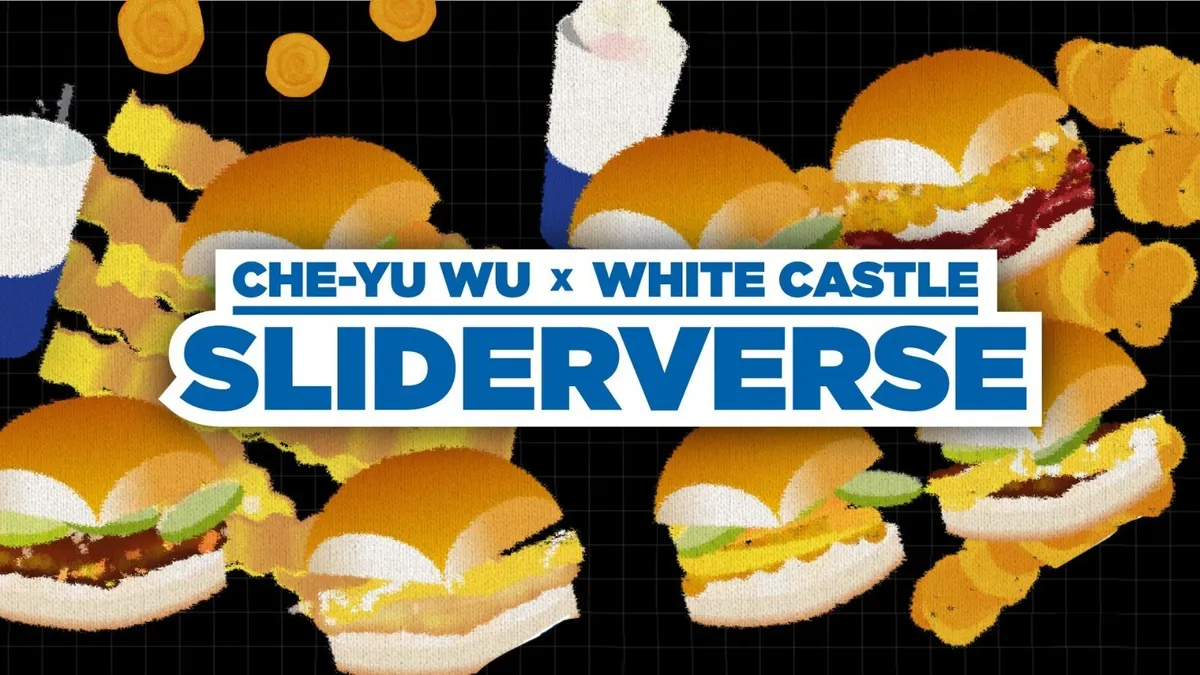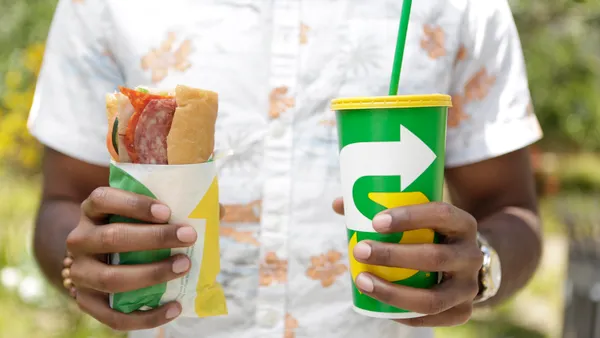Dive Brief:
- White Castle has teamed with Doodle Labs on a collection of 5,000 nonfungible tokens (NFTs) that commemorate the fast food chain's 100th anniversary, according to a news release. Brandgenuity, White Castle's exclusive licensing agency, is managing the rollout of the program.
- The "Sliderverse" pieces referencing the brand's signature menu offering were designed by digital artist Che-Yu Wu, whose previous work in the crypto-art space includes the Sailo-o-Bots, or "Sea Ham," collection. Sliderverse NFTs are made using the algorithmically generated minting technology of Art Blocks, which produces a unique asset at the time of purchase. White Castle is the first brand partner to apply the solution.
- White Castle is donating a portion of the proceeds to supporting its front-line employees, as well as a Team Member Scholarship Fund benefiting coworkers and their families. An ambitious move into the NFT space follows other quick-service restaurants but also arrives as bigger brand safety questions arise around the technology.
Dive Insight:
White Castle is taking the plunge on NFTs, like many companies, with an extensive collection of digital art celebrating its centennial. Brands are jumping on the blockchain-powered format to capitalize on the consumer craze around collectibles, where speculative investors and superfans will pay high prices to secure a unique piece of digital memorabilia that may appreciate in value over time. Beyond the monetary component, marketers that can successfully sell out their NFTs hope to prove that their brand has real equity with consumers.
Fast food has played a major role in the NFT marketing rush. Resurrecting the McRib earlier in the fall, McDonald's gave away a limited collection enshrining the otherwise hard-to-find item as an ownable asset. Burger King attempted a gamified take on the tactic by releasing packaging with QR codes that accessed NFT pieces when scanned. Collecting the full set unlocked further rewards, like merchandise autographed by celebrity ambassadors participating in a larger Keep It Real Meals promotion.
However, recent weeks have exposed how NFTs are prone to risks that marketers may not have initially considered. An anonymous user used the McDonald's crypto-wallet address attached to the McRib campaign to encrypt a message with a slur, Ad Age reported. While the offensive remark was buried in the code, the brand does not have an easy way to scrub it due to the immutable nature of the technology powering NFTs.
Some trial and error is to be expected as brands roll the dice on NFTs and other unproven tactics in the metaverse. Brand safety considerations will likely play a larger role in strategy next year as the field grows more crowded and attracts greater scrutiny.
For White Castle, the NFT move builds on other initiatives that have tried to position its brand as forward-thinking with digital marketing. Around Thanksgiving, the chain set up an account on OnlyFans, the subscription-based social media platform primarily associated with adult content, to share recipes featuring its sliders.















